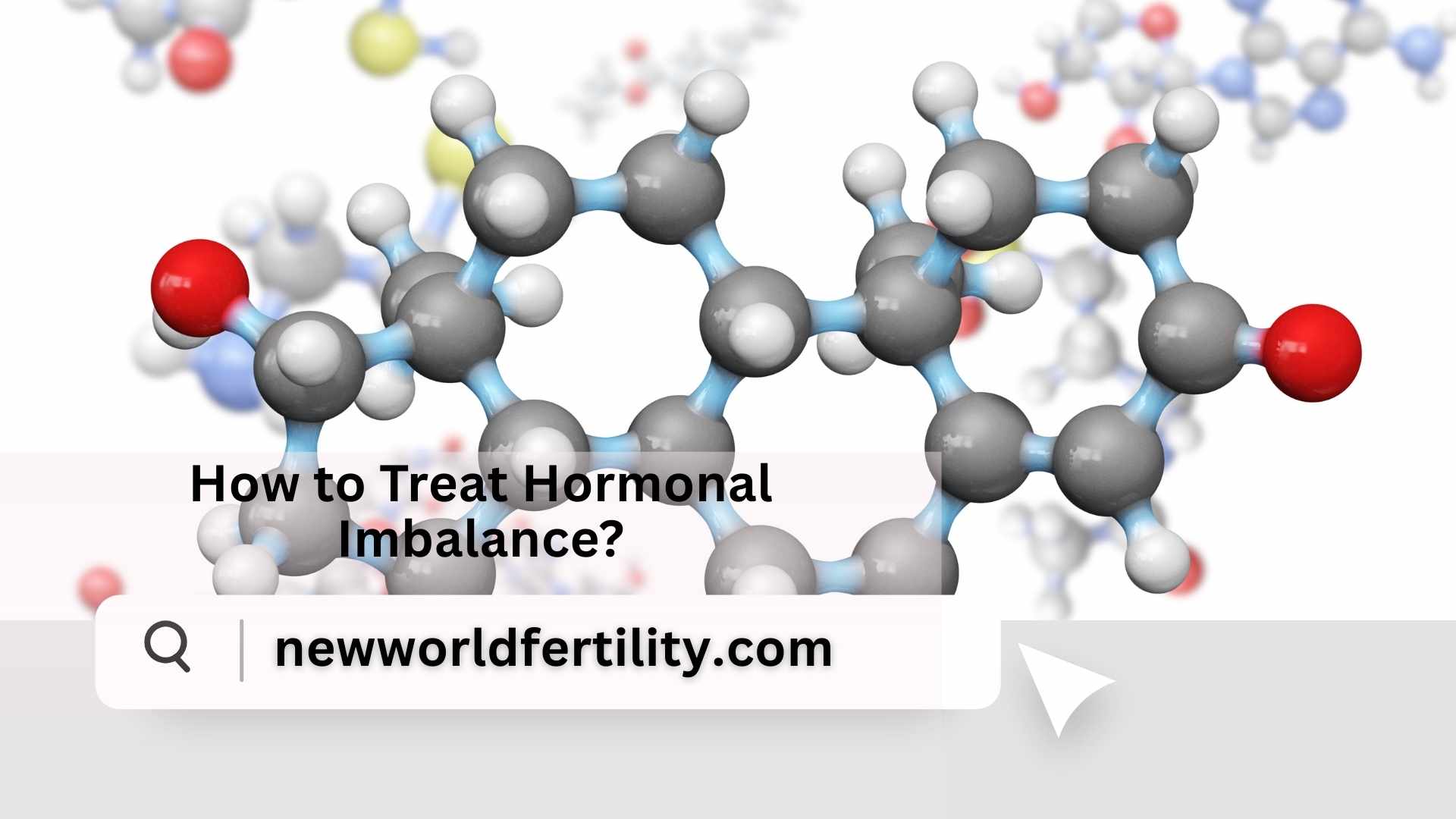How to Treat Hormonal Imbalance?
Hormonal imbalances can be a significant factor affecting fertility and overall health. At New World Fertility Centre in Delhi, we understand the complexities of hormonal health and offer a range of treatments and strategies to help manage and correct imbalances. Here's a comprehensive guide on how to address hormonal imbalances effectively:
1. Understand the Root Causes
Hormonal imbalances can stem from various factors, including:
- Stress: Chronic stress can disrupt hormone production and regulation.
- Diet and Nutrition: Poor diet or nutritional deficiencies can impact hormone levels.
- Medical Conditions: Conditions like polycystic ovary syndrome (PCOS), thyroid disorders, and diabetes can cause imbalances.
- Lifestyle Factors: Lack of exercise, poor sleep patterns, and exposure to environmental toxins can affect hormone levels.
Identifying the underlying cause is crucial for effective treatment.
2. Consult a Specialist
At New World Fertility Centre, our experienced specialists perform a thorough evaluation to diagnose hormonal imbalances. This often involves:
- Medical History Review: Understanding your symptoms and health history.
- Laboratory Tests: Blood tests to measure hormone levels.
- Ultrasound or Imaging: To assess reproductive organs and identify any structural issues.
3. Personalized Treatment Plans
Based on the diagnosis, a personalized treatment plan is developed. Common approaches include:
- Medications: Hormone therapy or other medications may be prescribed to correct imbalances. For example, birth control pills can regulate menstrual cycles and manage symptoms of PCOS.
- Lifestyle Modifications: Adopting a balanced diet, regular exercise, and stress management techniques can significantly impact hormone levels. Our specialists provide guidance on creating a healthy lifestyle plan tailored to your needs.
- Nutritional Support: Incorporating vitamins and minerals that support hormonal health, such as magnesium, vitamin D, and omega-3 fatty acids, can be beneficial.
- Alternative Therapies: Techniques such as acupuncture and herbal supplements may be recommended to support hormonal balance.
4. Ongoing Monitoring and Support
Regular follow-up visits are essential to monitor progress and make necessary adjustments to the treatment plan. Our team at New World Fertility Centre provides continuous support and education to help you understand and manage your hormonal health effectively.
5. Embrace a Holistic Approach
In addition to medical treatments, embracing a holistic approach can enhance overall well-being. This includes:
- Mental Health: Addressing emotional and psychological aspects of health is crucial. Techniques such as mindfulness and therapy can help manage stress and improve hormonal balance.
- Healthy Habits: Maintaining a balanced diet, staying hydrated, and getting adequate sleep are fundamental for hormonal health.
Conclusion
Treating hormonal imbalances requires a comprehensive approach that involves understanding the underlying causes, consulting with specialists, and implementing personalized treatment plans. At New World Fertility Centre, we are committed to providing expert care and support to help you achieve optimal hormonal health. If you suspect you have a hormonal imbalance or are struggling with related symptoms, contact us today to schedule a consultation.
FAQ
1. What are the common symptoms of hormonal imbalance?
Common symptoms of hormonal imbalance include:
- Irregular or heavy periods
- Severe acne or skin issues
- Unexplained weight gain or loss
- Fatigue
- Mood swings or depression
- Hot flashes or night sweats
- Difficulty sleeping
- Changes in libido
2. How is hormonal imbalance diagnosed?
Hormonal imbalance is typically diagnosed through:
- Medical History Review: Discussing symptoms and health history with your doctor.
- Laboratory Tests: Blood tests to measure hormone levels and identify imbalances.
- Ultrasound or Imaging: To evaluate reproductive organs and detect any structural issues.
3. What are the treatment options for hormonal imbalance?
Treatment options may include:
- Medications: Hormone therapy, birth control pills, or other medications to correct imbalances.
- Lifestyle Modifications: Adjusting diet, exercise, and stress management techniques.
- Nutritional Support: Supplements and vitamins to support hormonal health.
- Alternative Therapies: Acupuncture, herbal supplements, and other complementary approaches.
4. Can lifestyle changes help with hormonal imbalances?
Yes, lifestyle changes can significantly impact hormonal health. Adopting a balanced diet, engaging in regular exercise, managing stress, and getting adequate sleep can help regulate hormones and alleviate symptoms.
5. How long does it take to see results from treatment?
The time to see results can vary depending on the individual and the severity of the imbalance. Some may notice improvements within a few weeks, while others may require several months of treatment and lifestyle changes. Regular follow-up appointments help monitor progress and make adjustments as needed.
6. Are there any side effects associated with hormone therapy?
Hormone therapy may have side effects, including:
- Nausea
- Weight changes
- Mood swings
- Headaches
- Spotting or changes in menstrual flow
It’s important to discuss potential side effects with your doctor and monitor any adverse reactions during treatment.
7. How can I prevent hormonal imbalances?
Preventing hormonal imbalances involves:
- Maintaining a healthy diet rich in nutrients
- Engaging in regular physical activity
- Managing stress through relaxation techniques
- Avoiding exposure to environmental toxins
- Regular medical check-ups to monitor hormone levels

 Sep-09-2025
Sep-09-2025